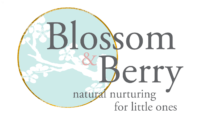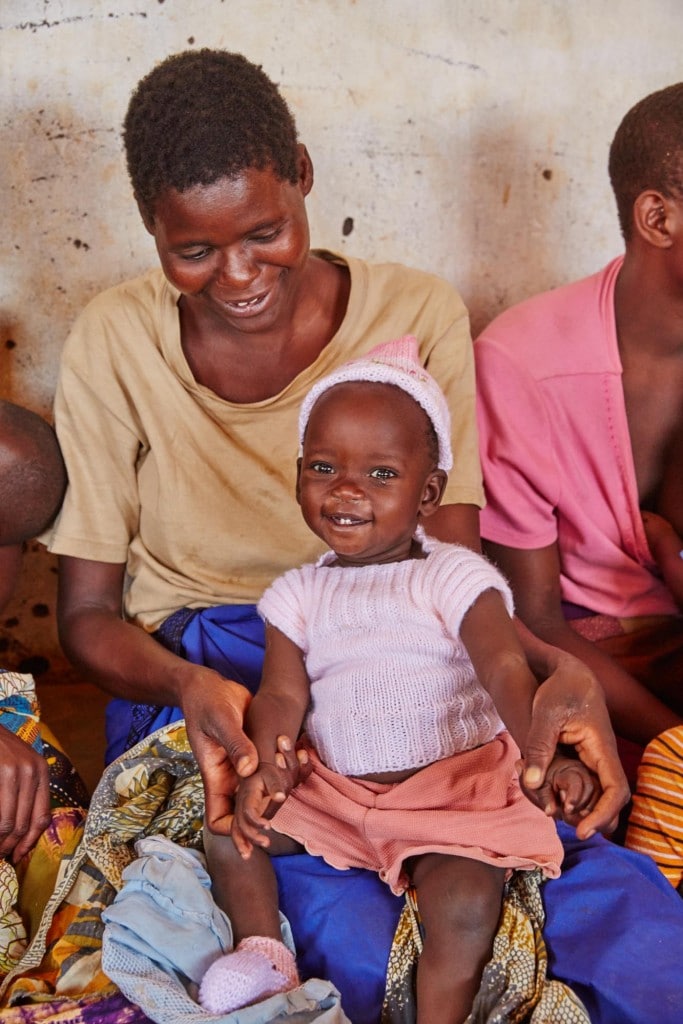I am just back and adjusting from Malawi after visiting Blossom & Berry’s Mother and Baby Health Initiative which is run with Love Support Unite.
Background: The challenge for mothers and babies in Malawi
Malawi is one of the poorest countries in the world, with more than half of its population living on less than 60p a day.
Poverty in Malawi is high such that over 53% percent of the population lives below the international poverty line.
Many mothers in poverty in Malawi have to work in the fields to get money to feed their families so babies have little one to one interaction as they are carried on their mother’s backs or left in the care of young children.
Many children in rural Malawi have poor health and nutrition adversely effecting their learning, cognitive development, and achievement. They are also exposed to the risk of malaria and diarrhoea which are both killers.
Only 17% of children age 36–59 months are developmentally on track for literacy and numeracy.
Only 28 % of children entering primary school in Malawi have had preschool experience.
According to World Health Organisation, there is one doctor for every 50,000 individuals so many children are vulnerable to illness and death.
Our focus is on touch, connection and positive interaction.
I started Growing Babies: The Little Blossoms Project (now the Mother and Baby Health Initiative) three years ago as a way to give babies in baby orphanages and crisis nurseries the opportunity to receive the vital touch they need for healthy physical and emotional development. So much research on the importance of touch comes from orphanages where children are touch deprived. Touch is vital for the healthy development of children and must be provided, alongside the support and interaction of a primary caregiver or key worker. The program initially taught orphanage staff how to use infant massage to connect with, and calm and relax the babies in their care.
The project proved to be so popular that it expanded very quickly from an orphanage setting to the community. I trained five Nurture Ambassador teachers working with over 150 mothers and babies a week, teaching more in-depth content around safe motherhood and infant massage and which incorporated women’s enterprise projects within them. After this initial expansion, we scaled the project down to three locations and now serve over 450 women a year with our program which integrates infant massage, positive interaction & stimulation, safe motherhood, first aid and hygiene. We train women in the community to train other women to teach the Program so the benefits reach as many women as possible. Each woman who attends the program receives a certificate and a small gift for herself or her baby to celebrate her achievement in studying. It’s a proud moment for everyone.
As far as I am aware Malawian mothers were not practising infant massage before I started the training and had never used a touch based practice around birth and post natal care for babies. When I arrived in Malawi I had no idea of the possible response. To my surprise the Malawian women completely embraced infant massage and we often had over 60 women walking over 5k to come to a packed out one hour session. The women made the massage routine their own by making up songs around the massage strokes and verbalising the benefits of touch and connection for babies. This truly filled my heart with joy (and my eyes with tears) as I knew that my work as an initial teacher trainer was done. To have the practice of infant massage accepted in a culture that had never widely experienced massage made me incredibly happy and the benefits to the women and the babies are clear for all to see. Mothers are tuning into, and responding to their babies’ cues. Babies are responding with smiles, joy and a desire to connect and learn. Physical and emotional wellbeing and development is being supported.
Why it is so important to focus on connection, emotional development and early years care?
Evidence shows that the early years – especially the first 1,000 days – are crucially important for lifetime health, learning, and productivity. For the most vulnerable children and families, early childhood development (ECD) is a high return investment.-World Bank Group.
Some people have questioned why focus on infant massage to help women in poverty. The answer is simple. The babies and children of Malawi are the country’s future and through responsive care, positive interaction and relationship forming, we can make a difference to poverty and individuals’ life experiences.
Research has shown that children’s development in the first three years of life shapes their outcomes as adults in terms of health, education and economic outcome. Investment in the early years is vital to give the next generation the best start in life.
Many children in Malawi have little or no stimulation between the ages of 0-3 and therefore do not have exposure to sensory experiences which help wire the brain for later learning and emotional intelligence. By not providing sensory rich and connective experiences in this crucial stage of child development, we are missing the opportunity to teach children that the world is a responsive and interactive place where community and connection can help solve problems that impact poverty.
“A powerful set of neuroscientific and economic evidence over the last 20 years now shows that early childhood is a critical stage of human development. The foundations of brain architecture and functioning, and subsequent lifelong developmental potential, are laid down in the early years in a process that is exquisitely sensitive to external influence. Early experiences in the home, in other care settings, and in communities interact with genes to shape the developing nature and quality of the brain’s architecture….. Each of these skills, measured in early childhood, are predictive of school success and completion; higher earnings; active participation in communities and society; and reduced odds of delinquency, crime, and chronic and non- communicable disease.” Thematic Group on Early Childhood Development, Education, and Transition to Work
What we teach in our Mother and Infant Health Initiative Program is easy to learn, cross cultural and requires very little resources. We teach women teachers to teach other teachers so a network of educators is produced to empower women. Infant massage is an extension of what we do naturally; to touch, to connect and to respond. These are the cornerstones of empathy, communication and human relationships.
Eunice’s story
I was honoured to meet and talk with an incredible lady on my Mother & Infant Health Initiative program. She is a mother of five children and because her husband is blind through illness, she must work, care and provide for all her family. During the next three months when famine comes, it will be incredibly hard to feed her family. She was so proud of her family and her home and wanted to learn how to change things for the future of her children. She is attending our Mother & Baby Health Initiative to learn about health, hygiene, first aid and safe motherhood and to spend time with her baby face to face through touch, eye contact, play and songs. The sessions are so valuable to her and brings the women in the community together.
Impact and outcomes of the Program in the short term
1. Babies receiving nurturing touch, eye contact and positive interaction.
2. Crucial “serve and return” practices are embedded in the massage sessions to support infant mental health.
3. Colic and constipation is eased through tummy massage.
4. Oxytocin is produced in babies bodies which can help to counteract stress and encourage better absorption of nutrients and improve sleep which enables growth.
5. Stronger bonds are created between mothers and babies.
6. Women are receiving education on hygiene, health, first aid and post natal care.
7. Women are receiving certificates to show the impact of learning and education.
8. Women are teaching other women in the community the importance of nurturing touch and safe motherhood.
9. First Aid training can save babies lives and postnatal health education can help prevent infections in new mothers.
Long term impact of the Program
1. Babies brains are being stimulated and wired for learning and emotional intelligence later in life.
2. Greater respect for babies and children impacting child protection.
3. Women being empowered through education.
4. Women’s groups coming together to give women status and the opportunity to form business cooperatives and create an independent income.
5. Boundaries around “positive” and “negative” touch are defined to help with male/female violence.
6. Lives are saved through education on hygiene.
7. A more connected and empathetic society is created.
8. Health and economic status can be elevated.
And this all starts with touch……
The project is going from strength to strength. If you might like to get involved, please get in contact. We would like to incorporate other early years practices and therapeutic services such as physiotherapy and OT.

